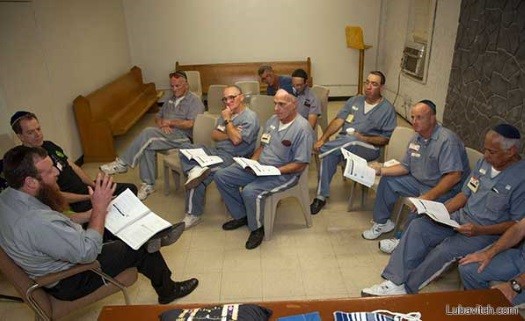
USA vs Florida: Kosher Food Now Ensured for Inmates
After years of court battles concerning inmates religious rights, Judge Patricia A. Seitz, of the United States District Court, ordered federal monitors to oversee that Jewish inmates in the Florida system be ensured to receive kosher food.
The injunction comes on the heels of previous rulings that required prisons in the state of Florida to provide Jewish inmates with kosher food, but which, according to inmates, the Justice Department and the judge, were not being followed.
The Florida Department of Corrections has argued that the program is too costly to maintain and can pose security risks when inmates need to be transferred to facilities that serve kosher meals. The judge ruled that it was in fact an obligation of the DOC to provide inmates with kosher food.
In her injunction, Seitz, permitted federal monitors to oversee the kosher food “Religious Diet Program” in Florida prisons. According to advocates, the latest injunction should finally guarantee Florida inmates who request them, kosher meals that are on par with standard prison food.
“Given the nature of providing a kosher diet, which includes proper preparation of the food, access to the facilities is necessary to ensure compliance with the Court’s orders. Access to prisoners and personnel is also necessary in this case,” wrote Seitz in her ruling. “Giving Plaintiff access to facilities to inspect the food preparation areas and ensure that procedures are followed is narrowly tailored and extends no further than necessary.”
Rabbi Mendy Katz, director of prison outreach for Aleph Institute, the Chabad-Lubavitch organization which provides services for some 5,000 inmates and their 25,000 family members, says that “every inmate should be given the opportunity to practice her or his religion freely, even while in jail. [We] are very thankful that the court has mandated that Jewish inmates must be provided with kosher meals with oversight from the Federal courts while being housed in the Florida Department of Corrections. ”
Katz, who is the leading force behind the case, admits that it could be difficult to understand why offenders should be given any privileges in prison. But prisoners who begin to practice self-discipline through Jewish observance show lower rates of recidivism.
“Everybody makes mistakes in life; some people make big mistakes,” says Richard Silverstein, 52, who had several stints in New York and Florida penitentiaries. Prison is a place where inmates have plenty of time to introspect, “to rewind the ‘video tape’” of their lives, and allow them to see how differently they could have done things, and inspire them to turn their lives around.
Silverstein, who currently manages several eateries, says that religion plays a major part in rebuilding one’s life in a meaningful way. “You have to start mending the soul; the best way to start that is with kosher food,” he says, noting that he spent much of his time in prison studying and then teaching Judaism to the other inmates.
Katz says that inmates must not be denied their religious rights. “The freedom to observe and practice one’s religion is a fundamental right for all Americans including prisoners,” and revoking one right is the start of a slippery slope.
The expensive court battles that began in 2007, cost Florida some $400,000, and should, according to advocates, be enough to place a halt on the Florida DOC to continue any further litigation.
“We look forward to working with the Florida Department of Corrections to ensure that Jewish inmates will be afforded every opportunity to observe and practice Judaism while they are incarcerated in the Florida State prison system,” Katz said.











Prison critic
Since when are prisons in the US in the business of mending souls? They could learn a few things from Israeli prisons, but US prisons aren’t in the business of learning from their mistakes either. Pfft….
Milhouse
Why do you think they’re called “penitentiaries”? Rehabilitation is part of their mission.
But it doesn’t really matter. Prisoners’ rights to practise whatever religion they subscribe to is entrenched in federal law, and is not up for negotiation. States must comply with the law, no matter how much it costs them.
David Herz
So murder, rape and child molestation is “a mistake?” I have worked in corrections and found out that many inmates that “practice” Judaism in prison are not halachically Jewish. Any inmate that says s/he is Jewish and requests kosher food, now must be given kosher food…
Milhouse
Not true. Prison authorities may question the sincerity of a prisoner’s claim to believe in a religious principle. But they can’t claim inconsistency of practise as grounds to question the sincerity; a prisoner may claim to hold a belief even if he occasionally is tempted to break it.
Milhouse
PS: Whether someone is halachically Jewish makes no difference at all. All that matters is what the prisoner believes, not what the halacha says.